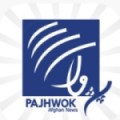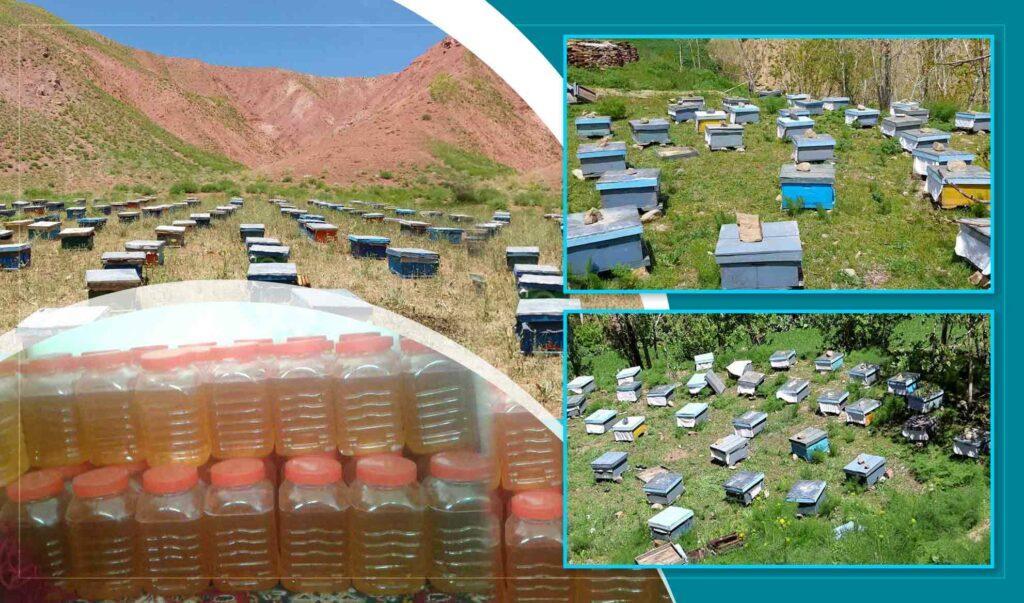
Daikundi Beekeepers Seek Proper Market For Their Product
NEILI (Pajhwok): A number of beekeepers in central Daikundi say the beekeeping industry has recently flourished and honey produced in the province has gained a special reputation for its high quality.
They say Daikundi's climate is particularly suitable for beekeeping, but the lack of a proper market for selling honey remains a significant challenge.
Hanif Ashna, a local beekeeper, explains that honey produced in Daikundi is natural and pure, and due to the diverse range of flowers in the region, it is even well-known in other provinces.
Although sales are currently low, Ashna reports that more than 70 percent of their honey is sold in local markets, with the remainder sold in other provinces.
He adds that in recent years, many people have entered the beekeeping business. Ashna attributes much of his success to the proper beekeeping methods he learned through studying books and watching educational videos, which helped him, establish his farm professionally.
One of the major obstacles Ashna faces is the lack of honey testing machines that could help differentiate between pure honey and adulterated products, resolving doubts between sellers and buyers.
He explains,“Unfortunately, sales are minimal; a few kilos remain on store shelves, and sales are not very high. Despite working hard on our farms, we sell up to 50 kilos per month.”
Ashna says that beekeeping and selling honey barely cover his expenses, and he calls on the government to create better conditions for selling honey.
Meanwhile, Mohammad Hussain Tawfiqi, another beekeeper from the Sangtakht and Bandar districts, says industrial beekeeping, in the form of registered farms, is a relatively new industry in Daikundi. Recently, many locals have turned to beekeeping.
Tawfiqi adds,“Daikundi honey is of high quality compared to honey from other regions, particularly the eastern areas. The beekeepers I know produce natural and high-quality honey.”
However, he also mentions challenges faced by the industry, including the lack of a proper market, the influx of adulterated honey, the absence of standardization mechanisms, and declining purchasing power among the public due to increased poverty.
He shares that he has been involved in beekeeping for several years and uses it to cover part of his living expenses.
On the other hand, Qudrat Mosawi, a Daikundi resident and honey consumer, is pleased with the high quality of local honey, which he says offers numerous nutritional and therapeutic benefits.
He attributes the honey's quality to the province's favorable climate, fresh flowers, and abundant natural resources.
Mosawi urges people to support local production by buying honey from Daikundi's beekeepers.
Officials from the Daikundi Department of Agriculture, Irrigation, and Livestock report that in the past year, a large number of people turned to beekeeping. Aminullah Jawadi, an official at the department, says 53 honey farms, both large and small, are now officially registered with the department.
He adds that 20 new beekeeping farms have started operating this year.
Jawadi explains that beekeepers rely on this industry to meet their economic needs and that the department provides guidance on beekeeping practices, proper housing, the economic importance of the profession, as well as advice on nutrition, health, and disease prevention.
Daikundi is one of Afghanistan's most agricultural provinces, with the majority of its residents relying on various agricultural activities for their livelihoods.
sa/ma

Legal Disclaimer:
MENAFN provides the
information “as is” without warranty of any kind. We do not accept
any responsibility or liability for the accuracy, content, images,
videos, licenses, completeness, legality, or reliability of the information
contained in this article. If you have any complaints or copyright
issues related to this article, kindly contact the provider above.






















Comments
No comment